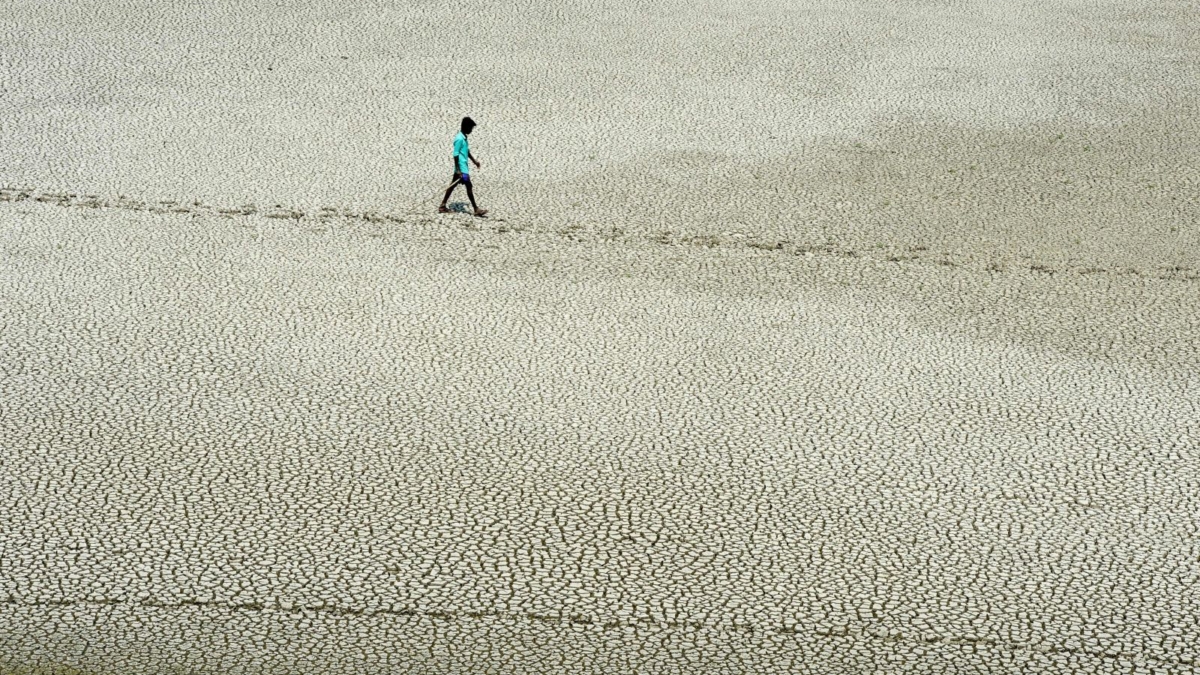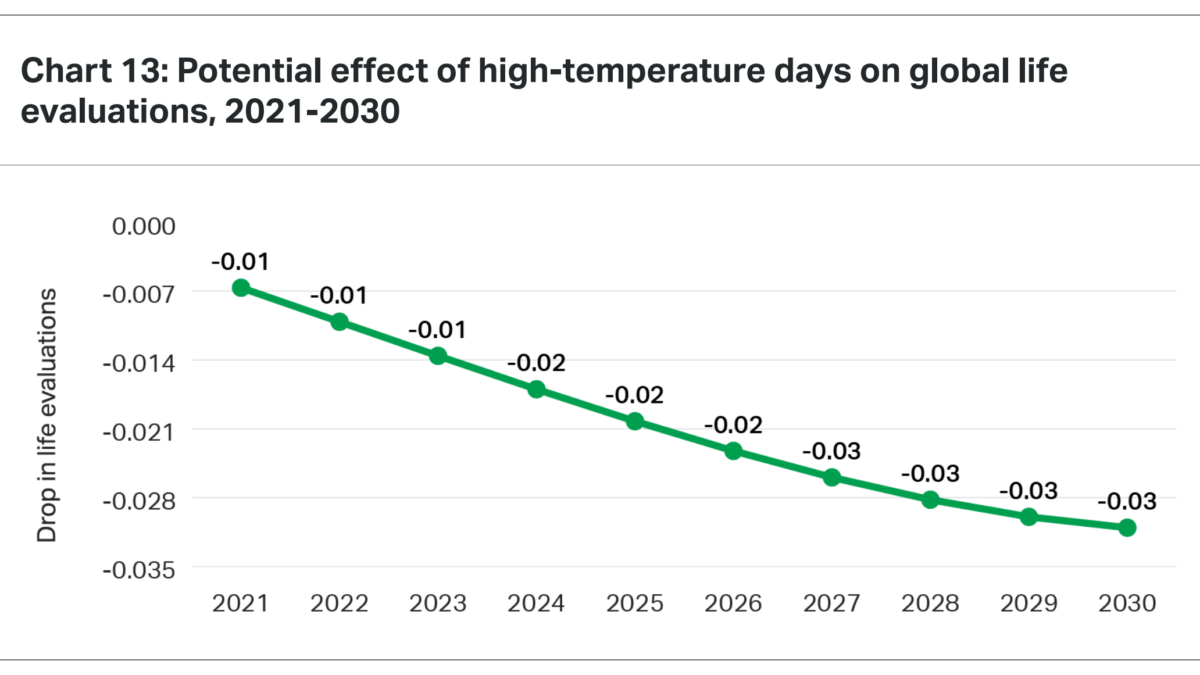Pakistan looks “like a sea” after floods, PM says, as 18 more die – “You wouldn’t believe the scale of destruction there”
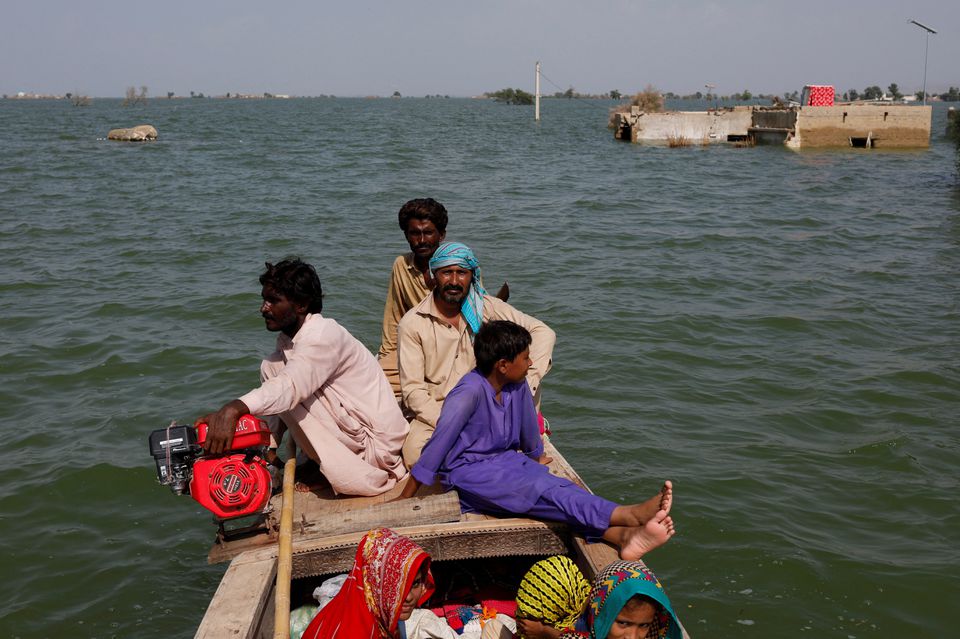
By Syed Raza Hassan and Asif Shahzad
7 September 2022
SEHWAN, Pakistan (Reuters) – Parts of Pakistan seemed “like a sea”, Prime Minister Shehbaz Sharif said on Wednesday, after visiting some of the flood-hit areas that cover as much as a third of the South Asian nation, where 18 more deaths took the toll from days of rain to 1,343.
As many as 33 million of a population of 220 million have been affected in a disaster blamed on climate change that has left hundreds of thousands homeless and caused losses of at least $10 billion, officials estimate.
“You wouldn’t believe the scale of destruction there,” Sharif told media after a visit to the southern province of Sindh. “It is water everywhere as far as you could see. It is just like a sea.”
The government, which has boosted cash handouts for flood victims to 70 billion Pakistani rupees ($313.90 million), will buy 200,000 tents to house displaced families, he added.
Receding waters threaten a new challenge in the form of water-born infectious diseases, Sharif said.
“We will need trillions of rupees to cope with this calamity.”
The United Nations has called for $160 million in aid to help the flood victims.
Many of those affected are from Sindh, where Pakistan’s largest freshwater lake is dangerously close to bursting its banks, even after having been breached in an operation that displaced 100,000 people.
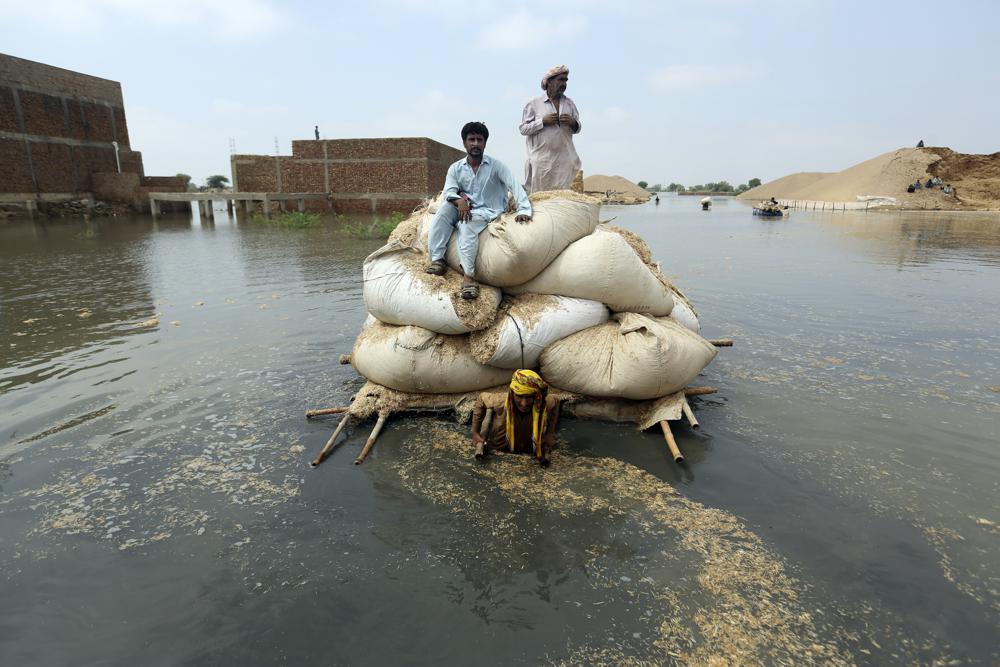
National disaster officials said eight children were among the dead in the last 24 hours. The floods were brought by record monsoon rains and glacier melt in Pakistan’s northern mountains.
The raging waters have swept away 1.6 million houses, 5,735 km (3,564 miles) of transport links, 750,000 head of livestock, and swamped more than 2 million acres (809,370 hectares) of farmland.
Officials in Sindh expect the waters to recede in the next few days, said provincial government spokesperson Murtaza Wahab.
“Our strategy right now is to be prepared for wheat cultivation as soon as the water recedes,” he added.
But with more rain expected in the coming month, the situation could worsen further, a top official of the United Nations’ refugee agency (UNHCR) has warned.
Already, the World Health Organization has said more than 6.4 million people need humanitarian support in the flooded areas.
Pakistan has received nearly 190% more rain than the 30-year average in July and August, totalling 391 mm (15.4 inches), with Sindh getting 466% more rain than the average. [More]
Pakistan looks ‘like a sea’ after floods, PM says, as 18 more die
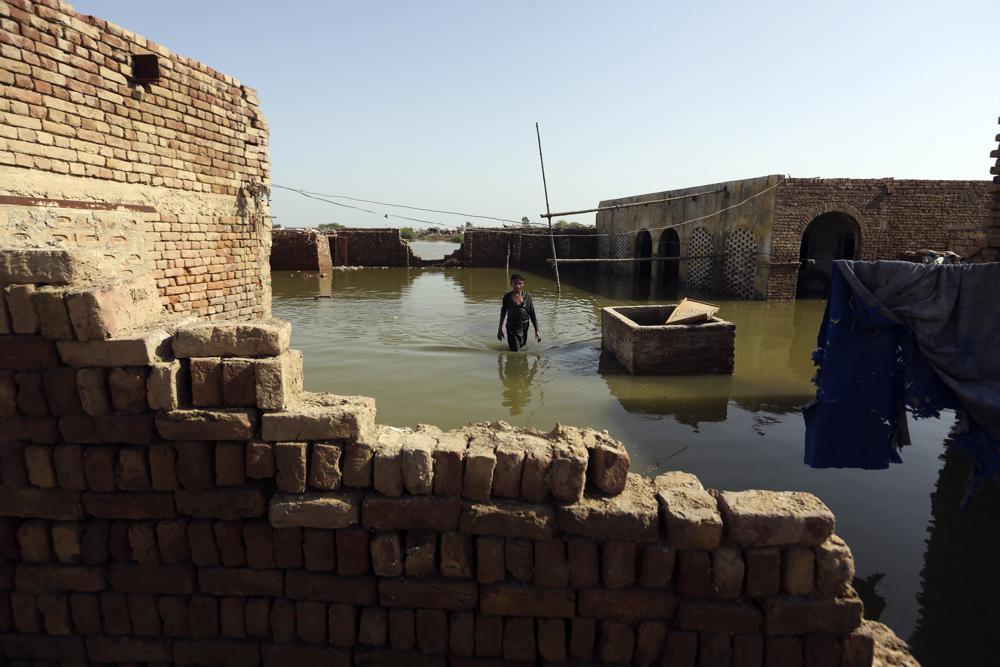
UN refugee agency rushes aid to Pakistan amid raging floods – “The floods have left children and families out in the open with no access to the basic necessities of life”
By Munir Ahmed
7 September 2022
ISLAMABAD (AP) – The U.N. refugee agency rushed in more desperately needed aid Monday to flood-stricken Pakistan as the nation’s prime minister traveled to the south where rising waters of Lake Manchar pose a new threat.
Two UNHCR planes touched down in the southern port city of Karachi and two more were expected later in the day. A third plane, with aid from Turkmenistan also landed in Karachi. While the floods in recent weeks have touched much of Pakistan, the southern Sindh province, where Karachi is the capital, has been the most affected.
More than 1,300 people have been killed and millions have lost their homes in flooding caused by unusually heavy monsoon rains in Pakistan this year that many experts have blamed on climate change. In response to the unfolding disaster, U.N. Secretary-General Antonio Guterres last week called on the world to stop “sleepwalking” through the crisis. He plans to visit flood-hit areas on Sept. 9.
On Sunday, engineers cut into an embankment in the sides of Lake Manchar in an effort to release rising floodwater to save the city of Sehwan and several nearby villages from possible destruction by flooding waters, which have damaged 1.6 million houses since mid-June.
Prime Minister Shahbaz Sharif was met by Foreign Minister Bilawal Bhutto in the city of Sukkur on the swelling Indus River, from where they toured the flood-hit areas by helicopter. Murad Ali Shah, the province’s chief minister, briefed Sharif about the damages caused by floods in Sindh.
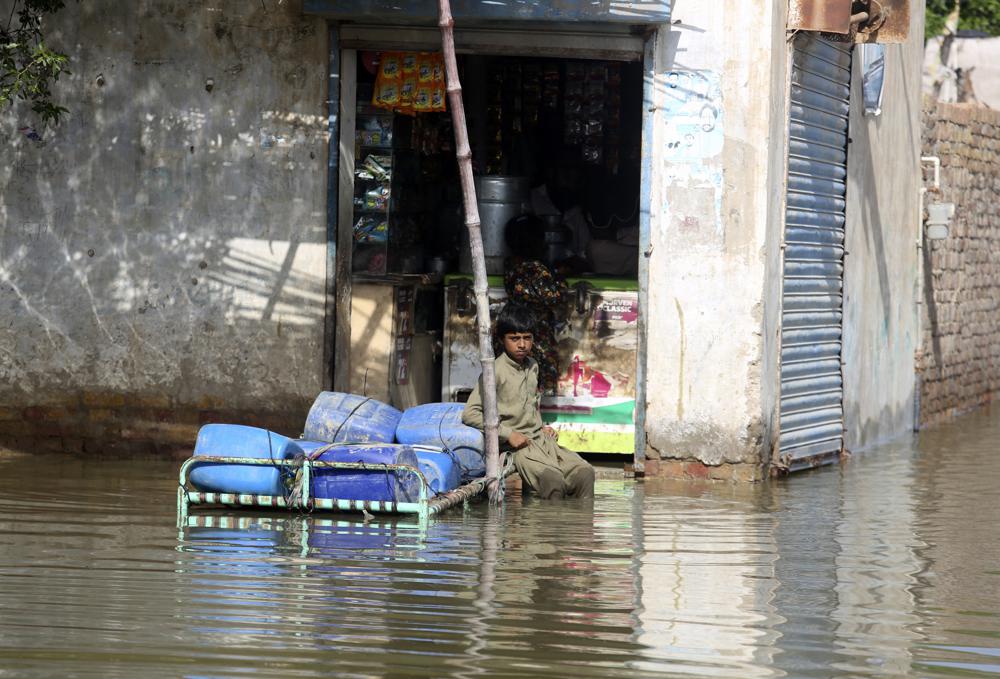
Floods have affected more than 3.3 million in this Islamic nation of 220 million and the devastation has caused $10 billion in damage, according to government estimates. The provinces of Punjab, Sindh, Baluchistan and Khyber Pakhtunkhwa have been the most affected and the majority of people killed were women and children.
Last week, the United States announced $30 million in aid for Pakistani flood victims. On Monday, two members of Congress, Sheila Jackson Lee and Tom Suzy, met with Pakistani officials and visited some of the stricken areas, the government said.
Pakistani President Arif Alvi at a ceremony in Islamabad awarded the country’s second highest award to Jackson Lee, who along with Suzy and U.S. embassy officials met with Prime Minister Sharif, according to a government statement. It said Sharif told the members of Congress that despite being one of the lowest emitters of carbon emissions, Pakistan was facing the brunt of climate change.
The statement said Lee conveyed her “deepest sympathies” for flood victims and said Congress and the Biden administration would support Pakistan “in the wake of this colossal challenge.”
Flood waters were receding in Punjab, Khyber Pakhtunkhwa and Baluchistan provinces, but the situation was alarming across Sindh province. Hundreds were leaving the district of Jaffarabad after their homes were flooded.
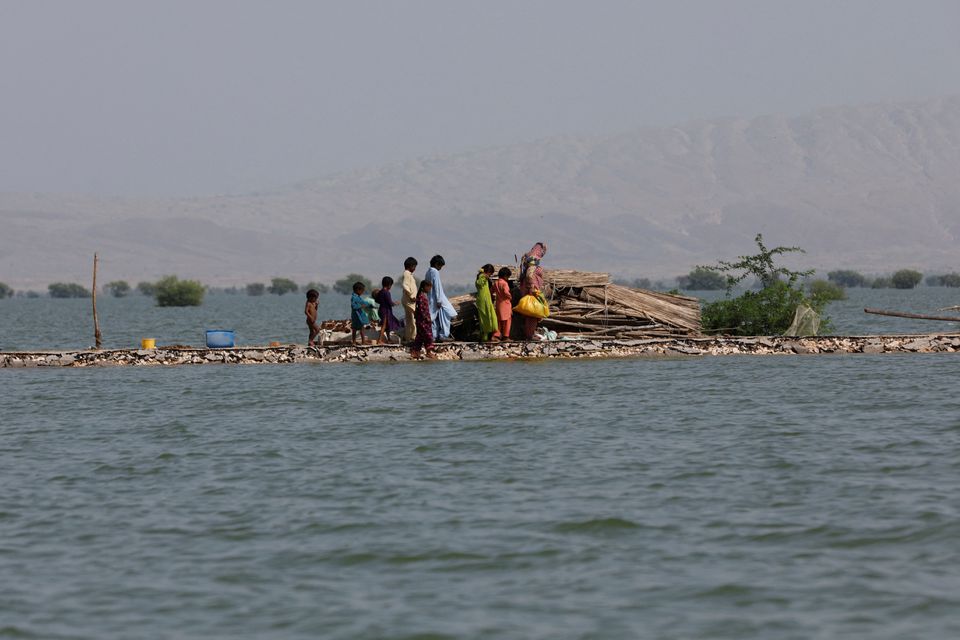
“Our homes are right now inundated,” said Khadim Khoso, 45, recounting how he waded through chest-high water. He said he and his family left their home once the floodwaters brought in the snakes.
“No government help has reached here,” he said. However, authorities say they are doing their best to deliver aid to flood victims.
Pakistan’s former Prime Minister Imran Khan also visited some of the flood-hit areas in Sindh on Monday, including the city of Sukkur. Last week, he drew government criticism for addressing a series of antigovernment rallies at a time of a flooding emergency for Pakistan. […]
Also Sunday, UNICEF delivered relief supplies, including medicines and water-purifying tablets, as part of the U.N. flash appeal for $160 million to support Pakistan’s flood response. UNICEF is also appealing for $37 million for children and families.
“The floods have left children and families out in the open with no access to the basic necessities of life,” said Abdullah Fadil, UNICEF’s representative in Pakistan. [More]
